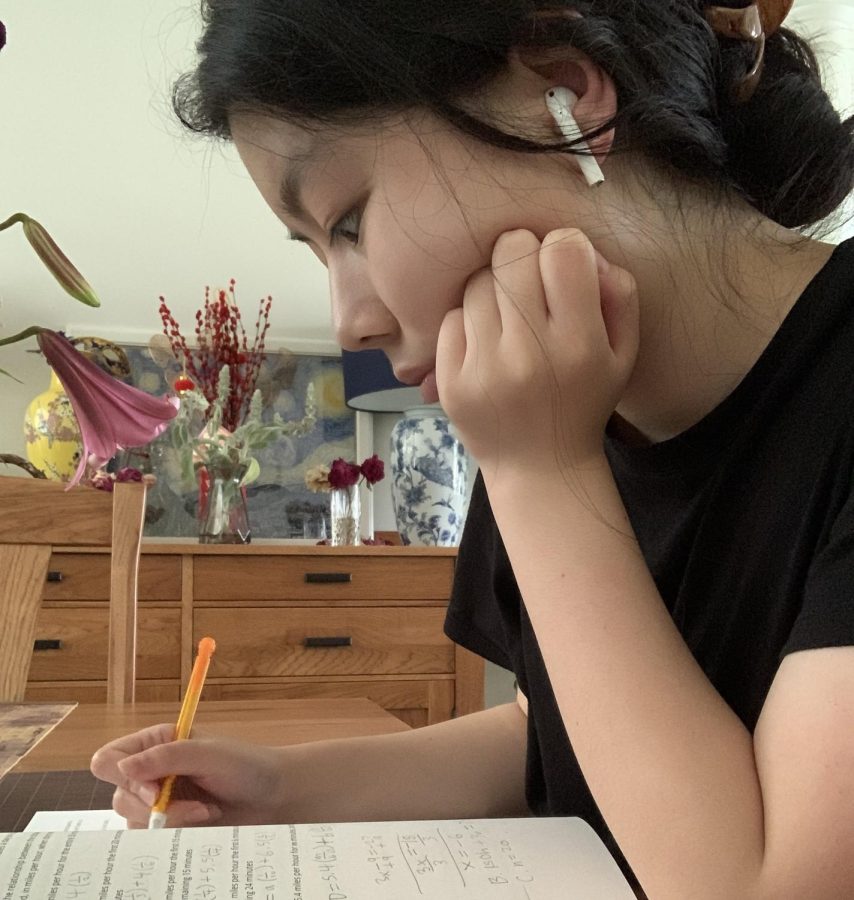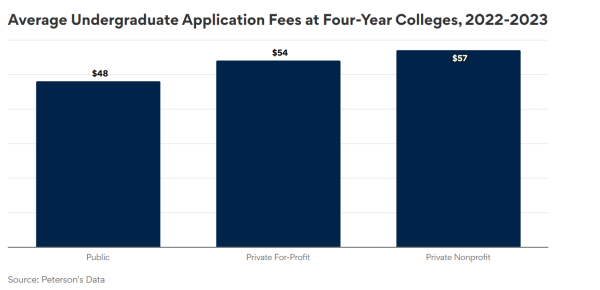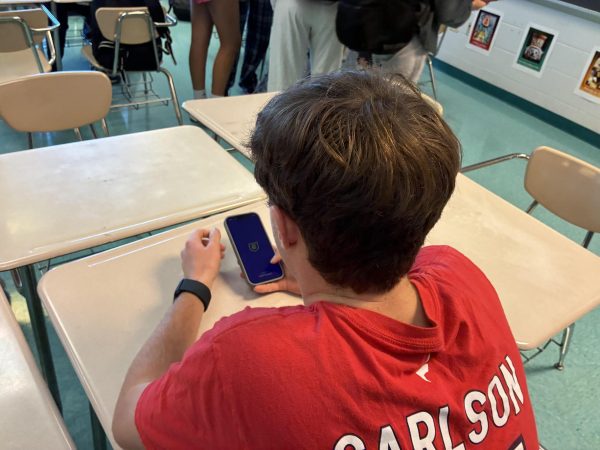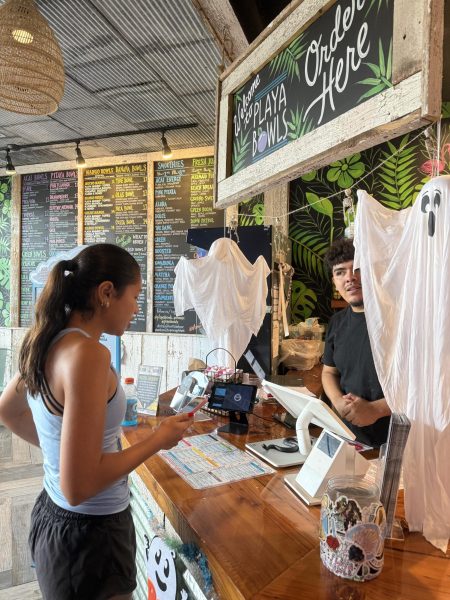Student take breather after AP exams
Photo by Christina Martirosova
Freshman Elizabeth Zhu studies for her AP NSL exam in May.
Students have multiple AP class options to choose from depending on grade level. At the end of each school year, students take their AP exam for college credit. AP classes save students money since they won’t have to pay money for that class in college.
Students and teachers started preparing for the exams in April. By April, teachers finish teaching all necessary units for the exam and start reviewing with their students. AP NSL and Economy teacher Christopher McTamany said, “For AP Gov we started the week before break with the SCOTUS notebook because it also benefited the final unit. I also told them they should be starting to review on their own at that point. A little bit each day/week. After break we finished the final unit and then started doing only review for three weeks before the test. For econ we started right after break. I told them they should start on their own over break, but they did not have anything assigned until after break. We only had 2.5 weeks before the AP exams for Micro and Macro, so we had less time to prepare than AP Government.”
Aside from studying on their own, students also use class time to prepare for the exams. Teachers devote class periods to preparing for the exams such as posting practice quizzes and answering questions. AP Psychology and Sociology teacher Amy Buckingham said, “The AP Psych team uses a rigorous schedule of practice quizzes, daily reviews, and practice essays to help students prepare for the test – content as well as style of question and scoring guidelines I also ran several Zoom reviews, and held InstagramLive sessions where I reviewed and answered questions. This general structure has worked for several years. I think we continue to evaluate and adapt annually as needed and based on student reviews but the general foundation seems to work well.”
It’s important for students to know how many AP classes they can handle. AP exams are stressful and take up time. Senior Keya Pawar who took AP Psychology, Physics, Environmental Science, Statistics, Literature said, “I definitely think I could have taken fewer exams this year. Since it was senior year, I could have gotten away with not taking all my exams, especially if they didn’t translate to college credit. I think studying for five tests took way too much of my time and I didn’t get to put as much effort into each subject as I would have liked. In hindsight, dropping at least one exam would have made the whole testing season much less stressful.”
Although students generally start studying a month before the exams, it’s still difficult to be fully prepared. Students can get confused with the wording of a question, forget a certain topic, or be unsure of how to answer a FRQ question. Freshman Grace Kyung said, “I think I did pretty decent to the point I got a good score but I feel like I could’ve done better. In future years I’ll study months before so I can fully understand the concepts because there were parts where I didn’t understand some questions on the test.”
Your donation will support the student journalists of Thomas S. Wootton High School. Your contribution will allow us to purchase equipment and cover our annual website hosting costs.







![Editors-in-Chief Ahmed Ibrahim, Helen Manolis, Cameron Cowen, Alex Grainger, Emory Scofield, Hayley Gottesman, Rebekah Buchman and Marley Hoffman create the first print magazine of the year during the October press days. “Only a quarter of the schools in MCPS have programs that are like ours, a thriving, robust program. That makes me really sad. This is not just good for [the student journalists] to be doing this, it’s good for the entire community. What [student journalists] provide to the community is a faith in journalism and that continues for their lifetimes," Starr said.](https://woottoncommonsense.com/wp-content/uploads/2025/10/wmpoFTZkCPiVA3YXA4tnGoSsZ4KmnKYBIfr18p3l-450x600.jpg)